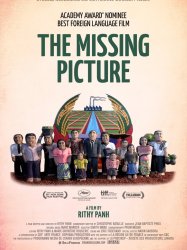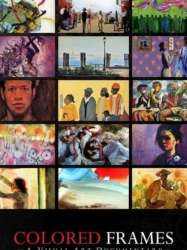Shouting Fire: Stories from the Edge of Free Speech is a american film of genre Documentary directed by Liz Garbus released in USA on 20 january 2009
Shouting Fire: Stories from the Edge of Free Speech (2009)

If you like this film, let us know!
Released in USA 20 january 2009
Length 1h14
Directed by Liz Garbus
OriginUSA
Genres Documentary
Themes Politique, Films about racism, Documentary films about racism, Documentary films about law, Documentary films about historical events, Documentaire sur une personnalité, Documentary films about politics, Political films
Rating73%










Shouting Fire: Stories from the Edge of Free Speech is a 2009 documentary film about freedom of speech and the First Amendment in the United States, directed by Liz Garbus. The documentary prominently features First Amendment attorney, Martin Garbus, who talks about the past and present state of free speech in the United States, and the case of Ward Churchill. A tenured professor of Ethnic Studies at the University of Colorado, Churchill was fired after publishing a controversial article about the 9/11 attacks and being investigated for academic misconduct related to other issues. The film also explores the cases of Debbie Almontaser, Chase Harper, and protesters at the 2004 Republican National Convention in New York City. Those interviewed include historians, legal scholars and attorneys, such as Floyd Abrams, David Horowitz, Eric Foner, Donna Lieberman, Daniel Pipes, Richard Posner, Kenneth Starr and Josh Wolf.
Trailer of Shouting Fire: Stories from the Edge of Free Speech
Bluray, DVD
Streaming / VOD
Comments
Leave comment :
Suggestions of similar film to Shouting Fire: Stories from the Edge of Free Speech
There are 5 films with the same director, 8973 with the same cinematographic genres, 10629 films with the same themes (including 0 films with the same 8 themes than Shouting Fire: Stories from the Edge of Free Speech), to have finally 70 suggestions of similar films.If you liked Shouting Fire: Stories from the Edge of Free Speech, you will probably like those similar films :

The Farm: Angola, USA (1998)
, 1h28Directed by Jonathan Stack, Liz Garbus
Origin USA
Genres Documentary
Themes Prison films, Documentary films about law, Documentary films about law enforcement
Rating74%






What Happened, Miss Simone? (2015)
, 1h41Directed by Liz Garbus
Origin USA
Genres Documentary, Musical
Themes Films about music and musicians, Documentary films about music and musicians, Documentaire sur une personnalité
Actors Simone
Rating75%





En plus de suivre son parcours musical, le documentaire s'intéresse à l'engagement de Nina Simone en tant que militante pour les droits civiques dans l'Amérique des années 1960 et son départ pour le Liberia à travers des images d'archives, des extraits de concert et des entretiens avec sa famille et ses proches.
 , 1h34
, 1h34Directed by Liz Garbus
Origin USA
Genres Drama, Documentary
Themes Sports films, Documentary films about sports, Documentaire sur une personnalité, Films about chess
Rating73%





En 1958, Robert James “Bobby” Fischer, alors âgé de quatorze ans, stupéfia le monde des échecs en devenant le plus jeune Grand Maître de l’histoire, lançant ainsi une carrière qui allait faire de lui une légende. Pendant les quinze années qui suivirent, son incroyable ascension au sommet du jeu captiva le monde entier et permit aux échecs de connaître un essor international considérable. Puis, à l’apogée de sa réussite, Bobby Fischer prit tout le monde par surprise en décidant de disparaître des yeux du grand public.

Love, Marilyn (2013)
, 1h47Directed by Liz Garbus
Genres Biography, Documentary
Themes Films about television, Documentary films about business, Documentary films about the film industry, Documentaire sur une personnalité, Documentary films about cities
Actors Elizabeth Banks, Marilyn Monroe, Lindsay Lohan, Evan Rachel Wood, Uma Thurman, Ben Foster
Rating71%





50 years after her death, two boxes of Marilyn Monroe's writings—diaries, poems and letters—were discovered in the home of Lee Strasberg, her acting coach. The film features dramatic readings of Marilyn Monroe's writings by actors, film critics, journalists and authors; and archival footage of Hollywood insiders who knew her or worked with her in various films or acting school.

Directed by Rosie Perez, Liz Garbus
Genres Documentary
Actors Rosie Perez, Jimmy Smits, Ramón Rodríguez
Rating72%






The Missing Picture (2013)
, 1h32Directed by Rithy Panh
Origin France
Genres War, Documentary, Historical, Animation
Themes Politique, Films about racism, Documentary films about racism, Documentary films about law, Documentary films about war, Documentary films about historical events, Documentaire sur une personnalité, Political films, Autobiographical documentary films
Actors Randal Douc, Jean-Baptiste Phou, Rithy Panh
Rating72%





En utilisant des figurines d'argile et des images d'archive, Rithy Panh témoigne des atrocités commises par les Khmers rouges au Cambodge entre 1975 et 1979.

Rwanda pour mémoire (2003)
, 1h8Directed by Samba Félix Ndiaye
Origin France
Genres Documentary
Themes Films set in Africa, Films about writers, Films about racism, Documentary films about racism, Documentary films about law, Documentary films about war, Documentary films about historical events, Documentaire sur une personnalité, Documentary films about politics, Political films
In 1994, between April and July, the massacre of Tutsis and moderate Hutus left one million dead. Instigated by Fest’Africa, a dozen African authors met four years after the events as writers in residence at Kigali, to try to break the silence of African intellectuals on this genocide.

Colored Frames (2007)
, 56minutesOrigin USA
Genres Documentary
Themes Films about racism, Documentary films about the visual arts, Documentary films about racism, Documentary films about law, Documentary films about historical events, Documentaire sur une personnalité, Documentary films about politics, Political films
Rating70%






Umurage (2002)
, 52minutesOrigin Espagne
Genres Documentary
Themes Films set in Africa, Films about racism, Documentary films about racism, Documentary films about law, Documentary films about war, Documentary films about historical events, Documentaire sur une personnalité, Documentary films about politics, Political films
In Rwanda, a hundred members of the Ukuri Kuganze Association, made up in its majority by survivors of the genocide, and a few of their executioners, freed after having confessed and asked for forgiveness in 2003, meet at a reinsertion center. These executioners are going home, in most cases to the same places where they carried out their crimes, and will have to "face" their victims and ask their forgiveness. In 1994, over a space of just one hundred days, almost a million people were murdered, that makes 10,000 dead per day.

A City Decides (1956)
, 27minutesDirected by Charles Guggenheim
Origin USA
Genres Documentary
Themes Films about education, Films about racism, Documentary films about racism, Documentary films about law, Documentary films about historical events, Documentaire sur une personnalité, Documentary films about politics, Political films
Rating64%





 Connection
Connection